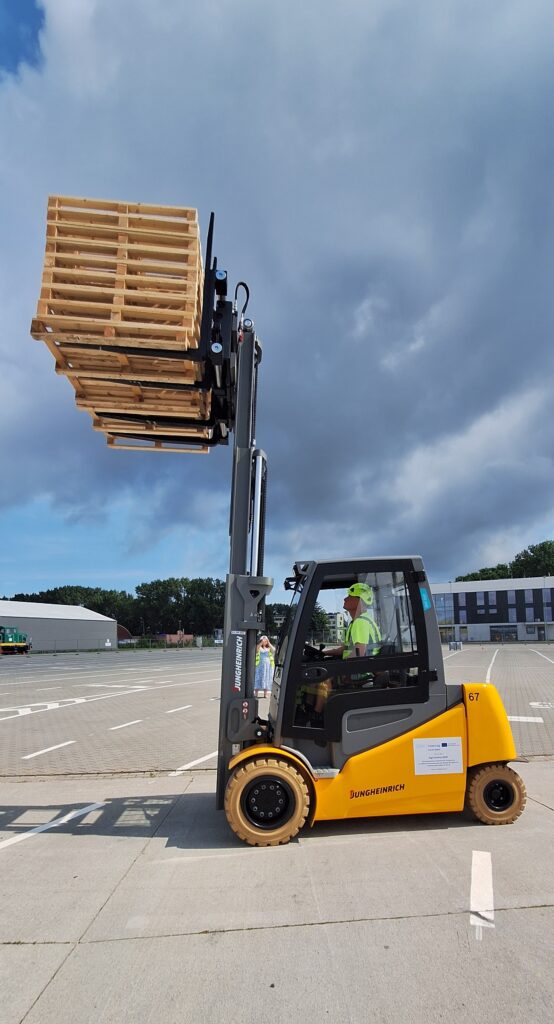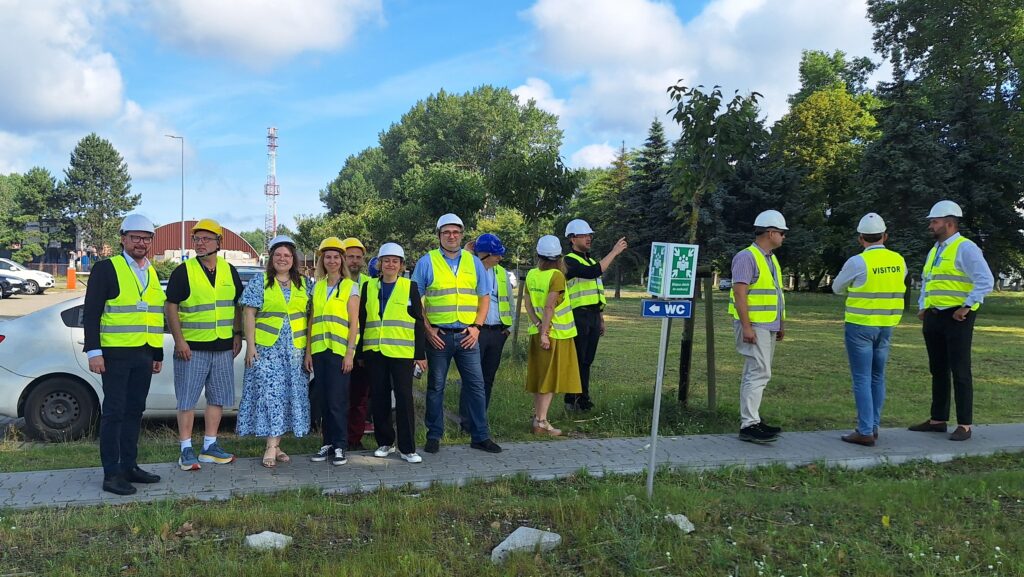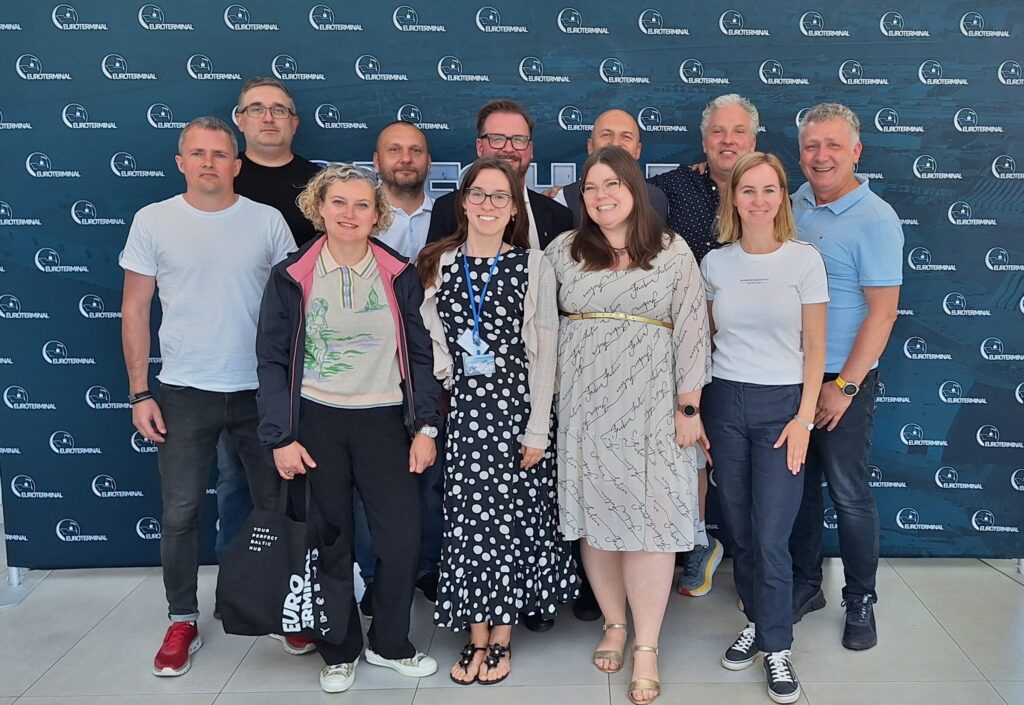From 15 to 16 July 2025, the DigiTechPort2030 project consortium gathered in Świnoujście, Poland, for a multi-day partner meeting and technical workshop hosted by Euro-Terminal Sp. z o.o. The event brought together representatives from project partners, pilot owners, and associated stakeholders to focus on the electrification, digitalisation, and green transition of small and medium-sized ports (SMSPs) across the South Baltic region.
The programme featured both strategic working sessions and practical demonstrations aligned with the project’s objectives under Work Packages 2, 3, and 4. A key highlight was the official presentation and live demonstration of Euro-Terminal’s newly implemented electric forklift, co-financed under the DigiTechPort2030 pilot activities.

The forklift, a Jungheinrich EFG 550, is a high-capacity, counterbalance electric vehicle with a load capacity of up to 4,200 kg. Equipped with smart features such as shock detection, RFID badge access, and real-time data logging, the forklift supports both sustainability and safety objectives in port operations. During the demonstration, visitors observed a manual battery swap using an overhead crane, as well as insights into how the telematics system monitors operational hours, operator activity, and downtime.
This pilot represents more than just an equipment upgrade—it is a testbed for Euro-Terminal’s broader electrification strategy. As part of the pilot, the terminal will assess charging cycles, fleet utilisation, and the return on investment compared to traditional diesel-powered equipment. In the medium term, the results will feed into simulations of scaled fleet electrification, including comparisons between lead-acid and lithium-ion battery technologies, and the potential introduction of automated battery swapping systems. The pilot also contributes to developing digital twin models focused on predictive maintenance, energy use optimisation, and CO₂ lifecycle analysis, supporting the project’s environmental objectives under the EU Fit for 55 framework.
As part of the event, a dedicated study visit to Euro-Terminal’s operational area was conducted. Participants toured infrastructure components including quay areas, cargo zones, cold storage, rail connections, and the secure charging station for electric vehicles. The full report from the study visit is available in the Results section under the Study Visit tab.

Beyond technical demonstrations, the Świnoujście meeting facilitated strategic alignment among partners on key deliverables and outreach objectives. In a dissemination-focused session under Work Package 4, Dr. Lawrence Henesey (Blekinge Institute of Technology) remarked, “We want to make the value of this project clear to people outside the room.” This sentiment shaped discussions on improving stakeholder engagement, communicating pilot results through accessible formats, and supporting policy development for smaller ports.
Participants contributed to thematic breakout groups focused on communication tools, policymaker engagement, long-term collaboration, and knowledge transfer. Planned outputs—including fact sheets, policy briefs, digital content, and a strategic action plan for SMSPs—are scheduled for delivery in Q3 2025.
The consortium extends its appreciation to Euro-Terminal Sp. z o.o. for hosting the meeting and for its contribution to applied pilot activities that directly support the project’s mission.
